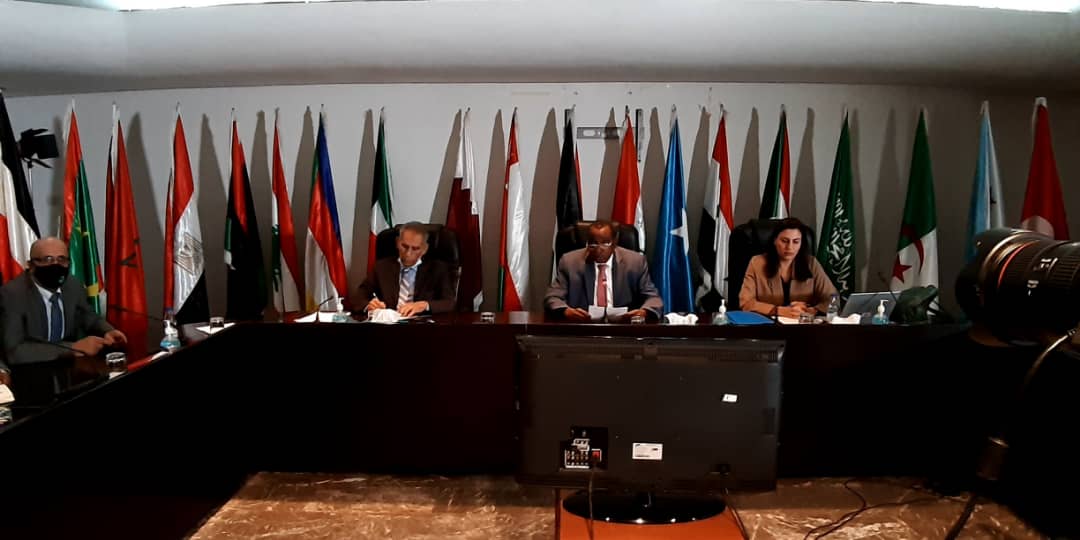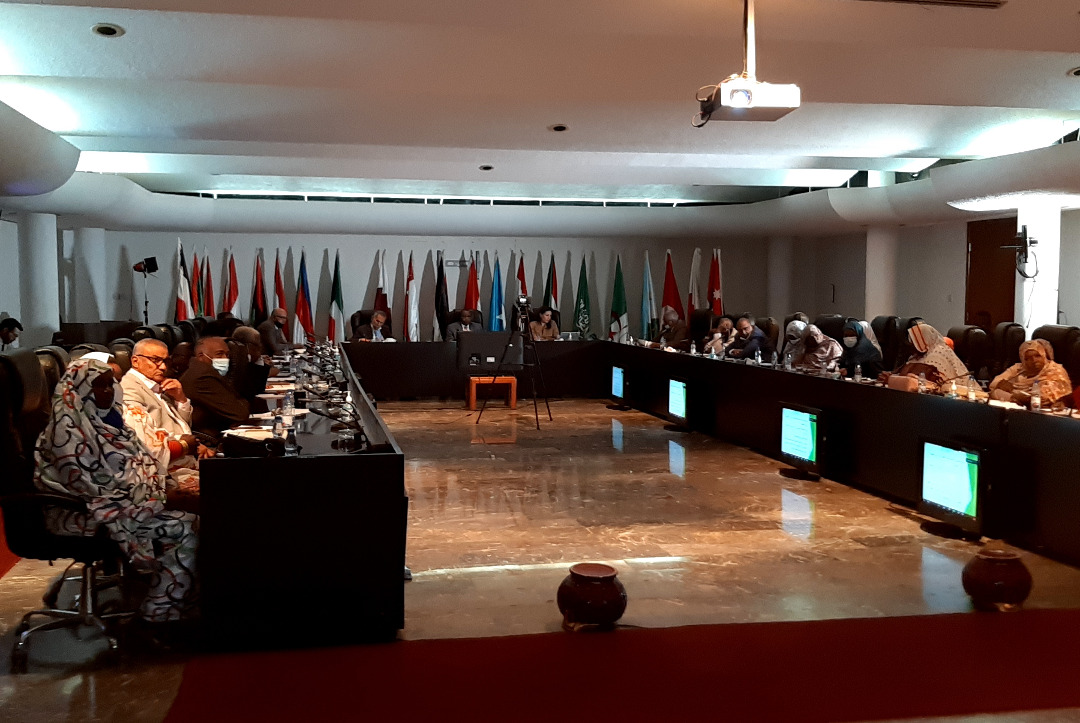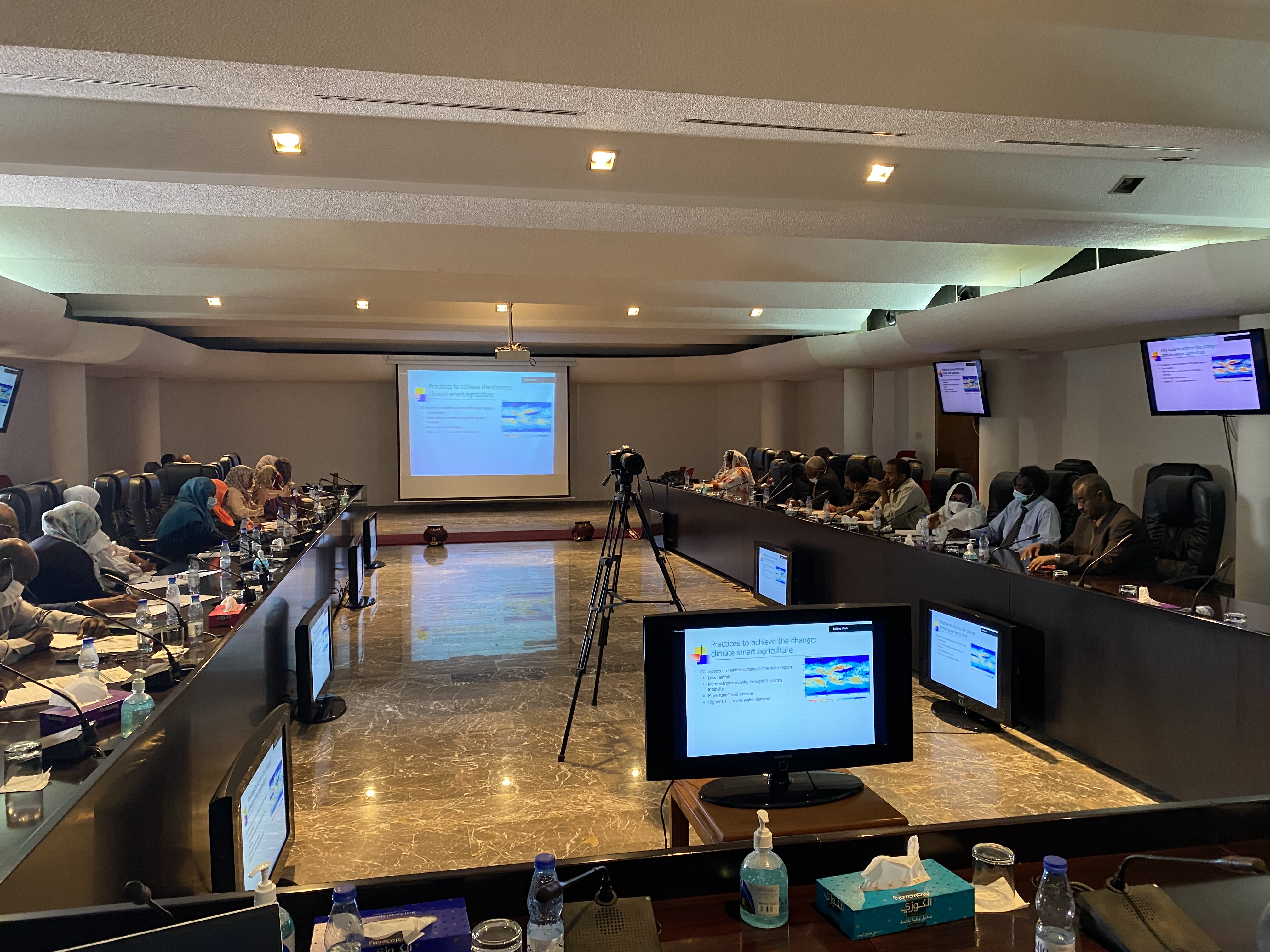Within the framework of the project on enhancing the resilience and sustainability of the agricultural sector in the Arab region, ESCWA, in cooperation with the Arab Organization for Agricultural Development, organized a national consultation session on enhancing the resilience and sustainability of the agricultural sector in Sudan. The session is part of a series of five national consultation sessions in Arab countries.
The consultation session considered ways to bolster Sudan's agricultural sector in the face of climate change, the unsustainable use of natural resources and the COVID-19 pandemic. The session, which gathered key national stakeholders from the agriculture sector, resulted in practical recommendations and the identification of national priorities. Representatives from the ministries of Agriculture and Forestry, Animal Resources, Irrigation and Water Resources, as well as the Higher Council for the Environment and Natural Resources and the International Fund for Agricultural Development, participated in the national session, in addition to specialists in agricultural, environmental, and academic fields, from the public and private sectors and civil society institutions.
It is expected that these five national consultation sessions in the targeted countries will result in a comprehensive document that identifies priorities and recommendations for the region's agricultural sector.




